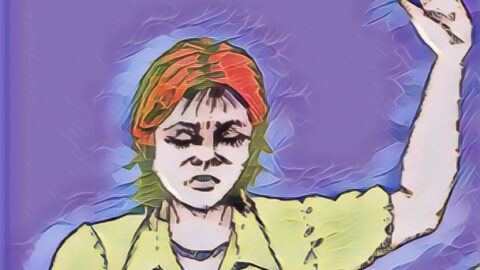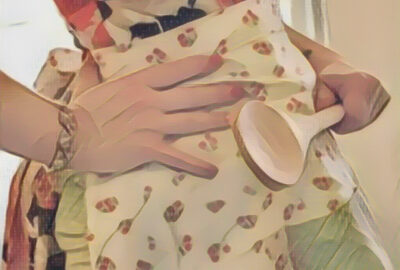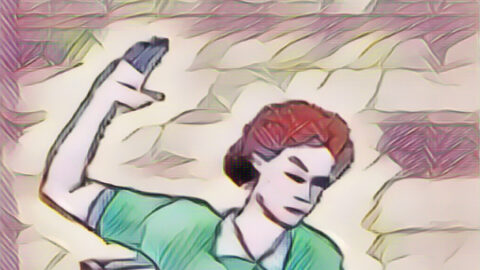(gap: 1s) My earliest memories are painted in the muted hues of a northern English town, where the air always seemed tinged with coal dust and the distant whistle of trains. I was born and raised in an industrial working-class town in the northwest of England during the 1960s—a place where the streets were lined with red-brick terraces, and the rhythm of life was set by the factory sirens and the laughter of children playing in the narrow alleys.
(short pause) Though we had little in the way of material wealth, my family carried themselves with a fierce pride. There was a sense of dignity in our poverty, a belief that respectability and discipline were the true measures of a person. My parents, shaped by the hardships of their own upbringing, clung to the traditions of their generation. To them, raising a child meant instilling a sense of right and wrong, and discipline was the cornerstone of that lesson. In our home, children were expected to behave, and if we strayed, punishment was swift, certain, and never up for debate.
(pause) The word ‘spanking’ was foreign to me until I heard it in an American film years later. In our house, it was always a ‘smacked bottom’—sometimes a ‘hard smacked bottom,’ and on the worst days, ‘a really hard smacked bottom.’ The words themselves carried a weight, a sense of inevitability that made my stomach twist with dread.
(short pause) For some of my friends, the punishment might be delivered over their short trousers—always short, never long in those days—or, more humiliatingly, over their underpants, the plain white Y-fronts that every boy seemed to wear. Sometimes a hairbrush or a belt was used, the implements themselves taking on a kind of mythic status among us children. But for me, until I was about twelve, it was always my mother’s hand, firm and unyielding, that delivered the lesson—always on my bare bottom, never anywhere else.
(pause) I can’t recall the very first time it happened, but I believe I was around four years old. The memory is hazy, more a feeling than a clear image—a sense of confusion, of being suddenly small and powerless. My mother told me recently that, at first, she would smack me over the seat of my shorts. But even as a little boy, I was stubborn. I would grit my teeth, refusing to give her the satisfaction of tears, no matter how hard she smacked.
(short pause) She confided this to a neighbor, a woman who had raised four boisterous boys of her own. The advice she received was blunt and unyielding: “You have to bottom him until he yells, or he’ll grow up defying you.” It was the kind of wisdom that passed from mother to mother in those days, unquestioned and absolute.
(pause) The next time my mother punished me, she followed that advice. I remember the sting of her hand, the sharp sound echoing in the small room, and the hot rush of tears that finally broke through my stubbornness.
(short pause) (dramatic pause) The memory of those moments is vivid, even now. The room would seem to shrink, the air thick with tension. I can still recall the scratchy feel of the carpet beneath my feet, the faint scent of laundry soap and my mother’s perfume lingering in the air. My heart would pound so loudly in my chest that I could hear it in my ears, a frantic drumbeat of dread. As she sat down and called me over, her voice was calm but resolute, and I knew there was no escape. My hands would tremble as she took my arm, guiding me gently but firmly. The anticipation was almost unbearable—the slow unbuttoning of my shorts, the cool air against my skin, the humiliation of being exposed and vulnerable. (pause: 0.3s) Then, the sharp, unmistakable sound of her hand meeting my bare skin would ring out, echoing off the walls. Each smack was a jolt—a burst of heat and pain that seemed to radiate through my whole body. I would gasp, then cry out, the tears coming hot and fast, my face burning with shame. The rhythm of her hand was relentless, and the sting built with every blow, until my resolve crumbled and I sobbed openly, promising to be good, to never do it again. The physical pain was sharp, but it was the emotional weight—the sense of disappointment, the knowledge that I had crossed a line—that lingered long after the smacks had faded. When it was over, my bottom would throb and burn, and I would be left sniffling, my cheeks wet with tears, the world feeling both smaller and somehow safer, the boundaries of right and wrong reasserted in the most tangible way.
(pause) From that day on, she only had to begin unbuttoning my shorts for me to dissolve into tears and desperate pleas, the anticipation often worse than the punishment itself.
(short pause) That reaction sealed my fate for years to come. It wasn’t that I was punished every day—far from it. But the threat of it hung over me like a shadow, shaping my behavior in ways I didn’t fully understand. The possibility was always there, lurking in the background, a silent warning that kept me in line.
(pause) My mother wielded language as skillfully as she did discipline, using words to signal the level of danger I was in. “Someone’s going to get their bottom smacked,” she’d say, her tone light, almost teasing. It was a gentle reminder, a warning that things could escalate if we weren’t careful. But when she said, “I’ll smack your bottom,” I knew I was on thin ice. The words were sharper, the threat more real, though still not immediate.
(short pause) There were gradations to her warnings, subtle shifts in tone and emphasis that I learned to read like a secret code. “I’ll smack your bottom,” she’d say, the word ‘bottom’ carrying extra weight, a sign that her patience was wearing thin. Yet, even then, the actual punishment might not come. The uncertainty was its own kind of torment.
(pause) Sometimes the threats were delivered calmly, almost as if she were discussing the weather. Other times, her voice would rise, sharp with frustration. But I learned that the tone was no true indicator of how close I was to the edge. The real danger lay in the quiet moments, the calm before the storm.
(short pause) When we went out—perhaps to the corner shop, or to visit relatives—the stakes were higher. “If you show me up, I’ll smack your bottom in front of everyone,” she’d warn, the word ‘everyone’ ringing in my ears. The thought of public humiliation was enough to keep me on my best behavior, though I still remember the burning shame of the few times she followed through, my cheeks hot with embarrassment as strangers looked on.
(pause) The most dangerous question of all was, “Do you want your bottom smacked?” It was a trap, and I knew it. Sometimes it was rhetorical, meant to frighten me into submission. Other times, an answer was expected, and I had to judge which was which. If I guessed right and replied, “No, Mum,” with my head bowed, I might be spared. If I guessed wrong—if I answered when I shouldn’t, or stayed silent when a response was needed—I risked being labeled cheeky or insolent, and the consequences could be swift and severe.
(short pause) If I managed the right answer, she’d say, “Well, behave then!” and the moment would pass, the threat receding like a wave. But if I misjudged, the tension would snap, and I’d find myself on the receiving end of a scolding—or worse.
(pause) The most terrifying words, though, came in the quietest moments. After repeated warnings, or when my behavior crossed an invisible line, my mother would speak in a low, calm voice, her hands busy with sewing or knitting. She wouldn’t even look at me as she said, “Are you going to stop what you’re doing… or perhaps you would prefer to have your bottom smacked?”
(short pause) It was the words ‘perhaps’ and ‘prefer’ that chilled me. They made it sound as if I had a choice, as if I could simply decide to stop and avoid the punishment. But I knew, deep down, that once those words were spoken, my fate was sealed. There was nothing I could do to change the outcome.
(pause) I would begin to plead, my voice trembling with desperation. “No, mummy, please—I won’t do it again. I promise, I’ll be good. Please, don’t.” The words tumbled out in a rush, my heart pounding in my chest.



























































